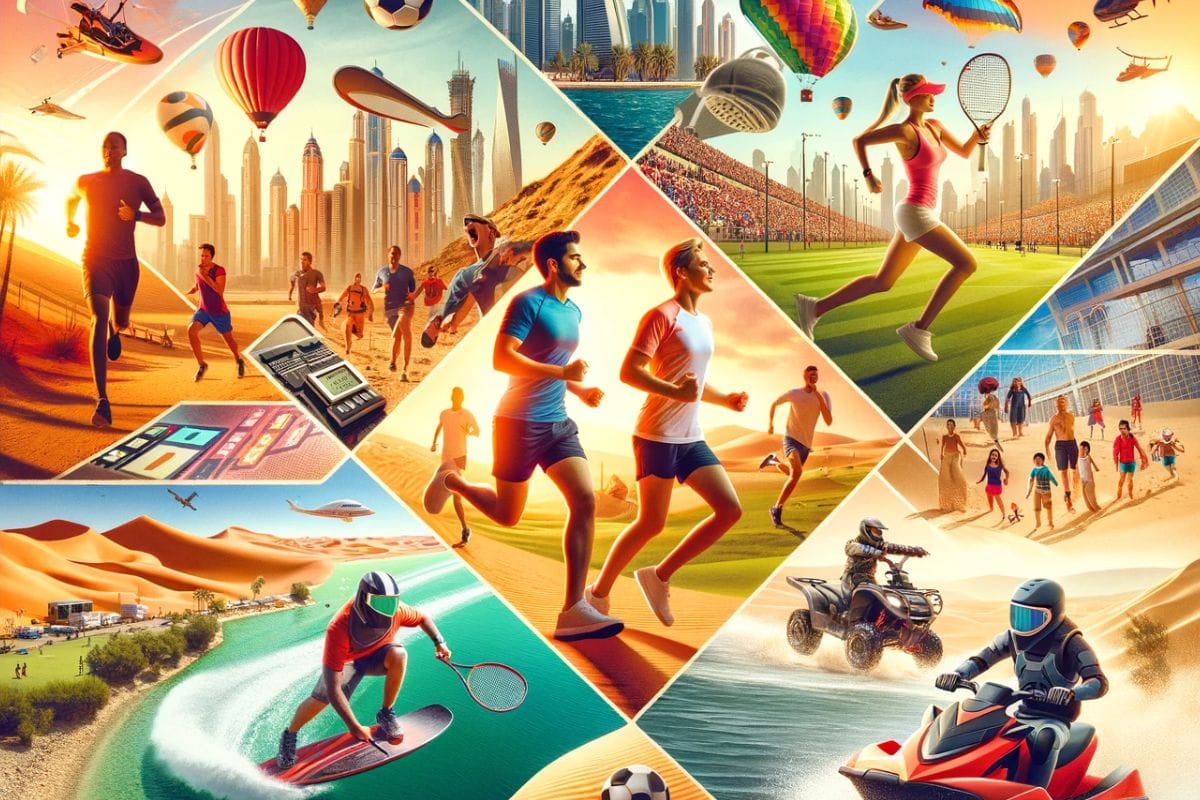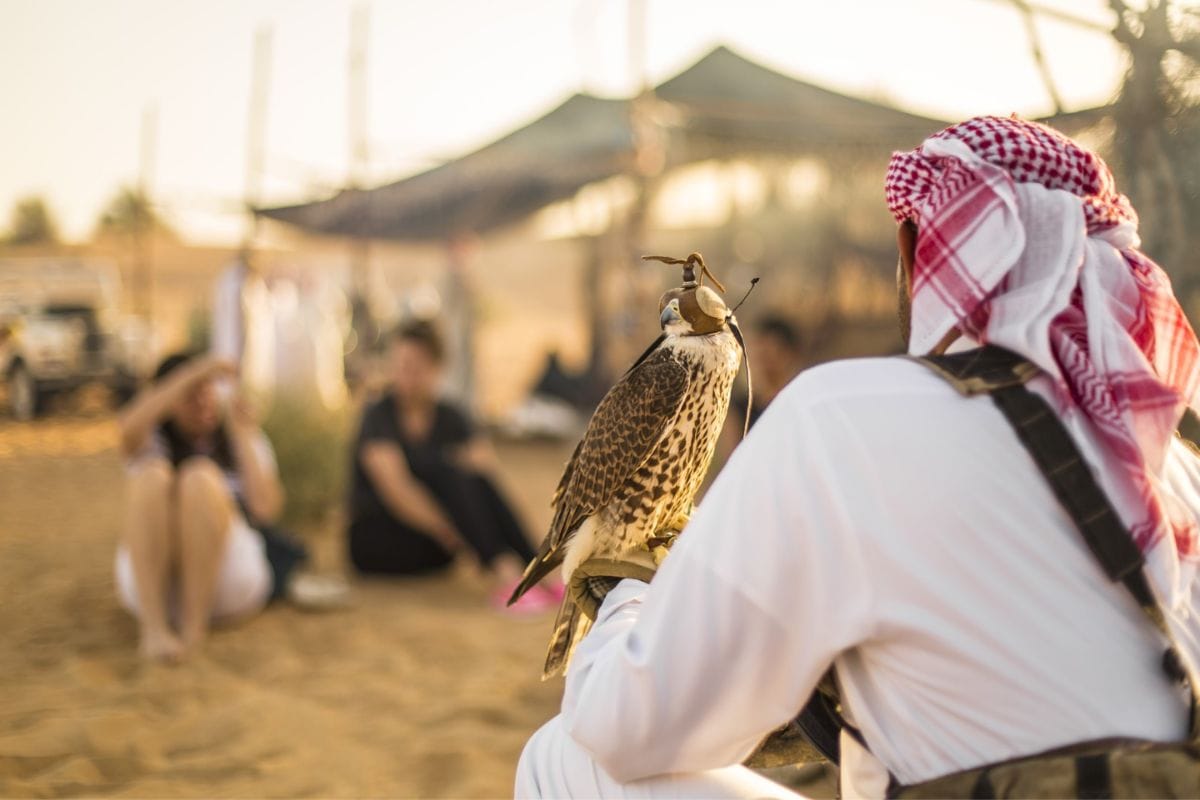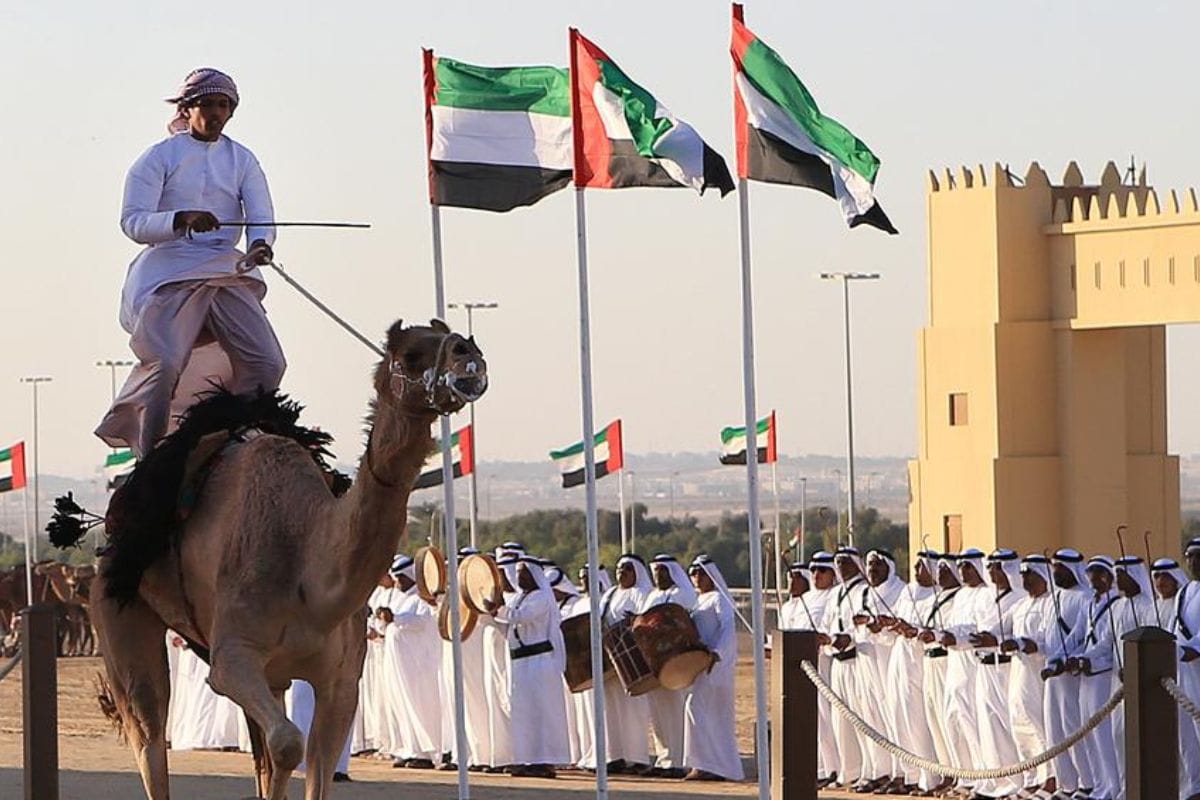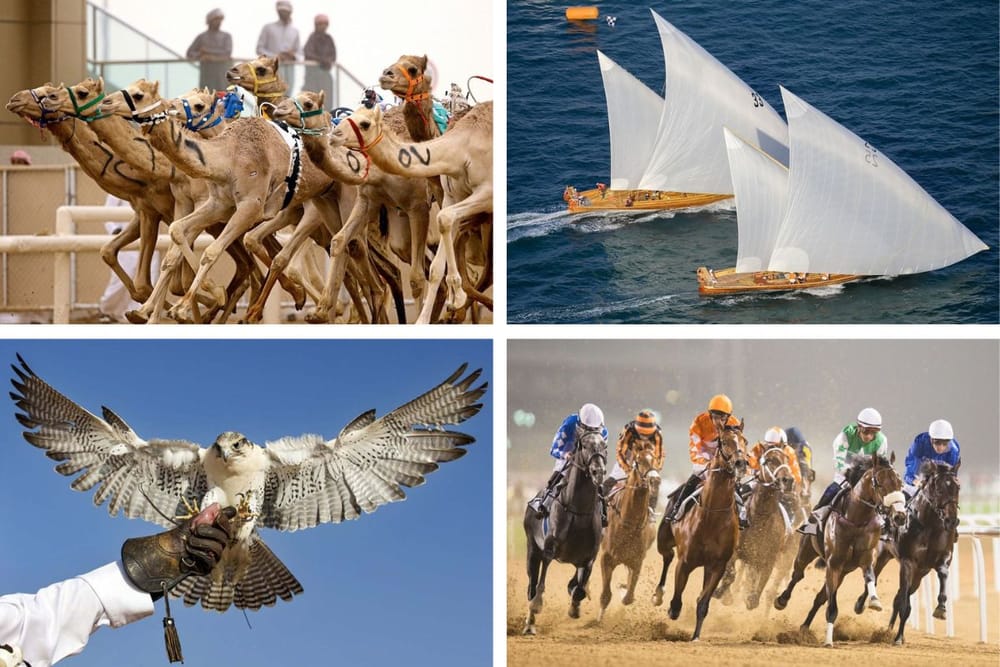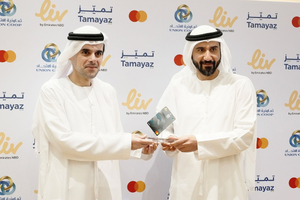Traditional sports in the UAE offer a fascinating glimpse into the country's rich cultural heritage and historical way of life. The UAE's dry climate and vast stretches of sand and rugged terrain have shaped the skills and traditions of its people. Over time, these skills, once essential for survival in a harsh environment, evolved into celebrated sports that are now an inseparable part of Emirati culture.
As the UAE has rapidly developed, transforming its deserts into modern cities and tourist attractions, it has not forgotten its roots. Traditional sports serve as a bridge between the past and present, keeping the spirit of the desert alive while promoting health, entertainment, and a sense of community among those who share a love for these unique games.
In this article, we'll explore the top traditional sports in the UAE, delving into their significance and the role they play in preserving the nation's heritage.
Falconry
Falconry has been an integral part of Emirati culture for thousands of years, deeply intertwined with the lives of the Bedouin Arabs. In the arid deserts, where food was scarce, falcons proved invaluable for hunting. Their sharp eyesight and swift flight enabled the Bedouins to catch birds like Bustards and Curlews, essential for sustenance, especially during special occasions.
Traditionally, falcons were domesticated and trained for hunting due to their ease of training and ability to deliver prey without killing it. This skill was crucial, as the food needed to be halal, requiring the prey to be slaughtered alive. Over time, falconry evolved from a survival skill to a revered sport. Falcons, admired for their beauty and speed, symbolise pride and honour in Arab culture.

Today, falconry is considered an art in the UAE. Emiratis take great care in training their falcons, forming strong bonds with them. The training process is meticulous, requiring patience and an understanding of the bird’s behaviour. Falcons are acclimated to human presence using a leather hood called a Burqa, which calms them by covering their eyes. Training young falcons, typically around seven months old, involves techniques like food deprivation to make them more tameable. The birds are taught to dive and attack prey using feathered decoys and gradually increasing weights to build their muscles.
Falconry has gained international recognition, with UNESCO adding it to its list of intangible cultural heritage in 2016. Falcons are now primarily used in sporting events, where their strength and speed are showcased. Races and competitions, such as the Fazza championship, are highly popular, with racing falcons selling for substantial amounts and winning significant prizes.
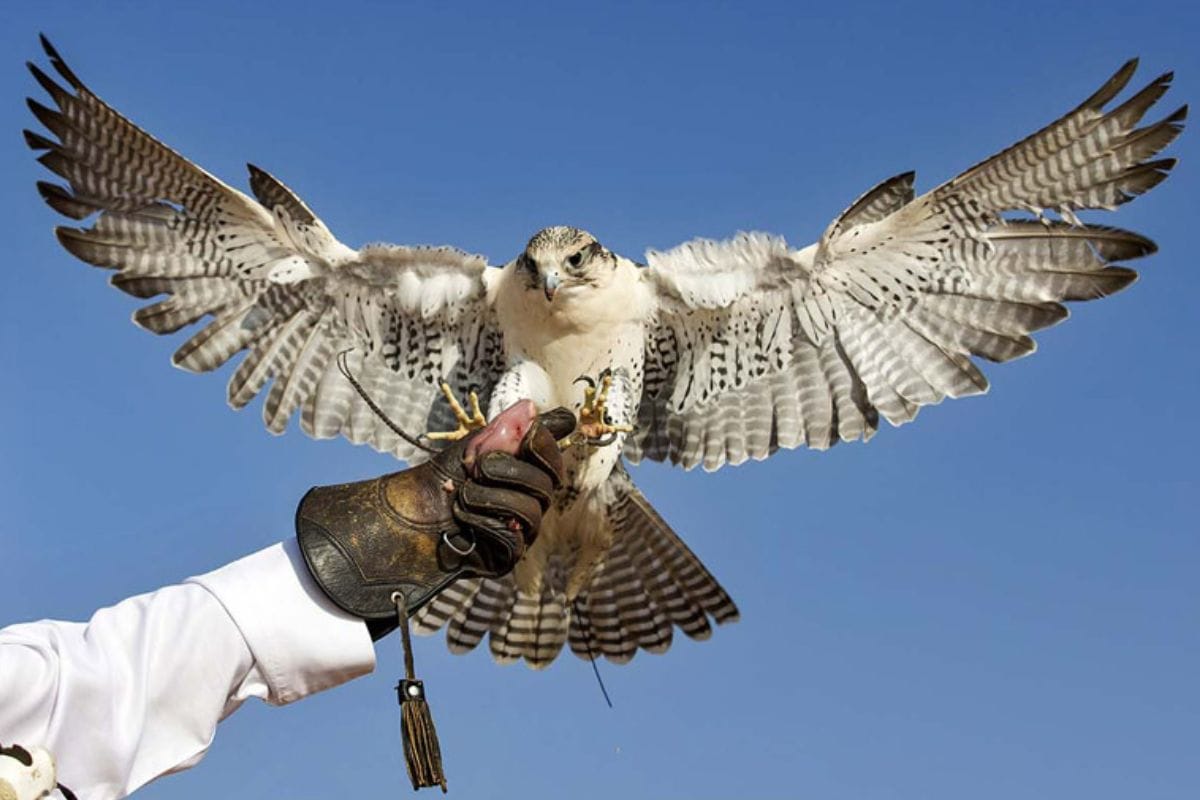
The UAE's commitment to falconry is evident in its efforts to protect these birds. The country was the first to issue falcon passports and establish specialized falcon hospitals in Abu Dhabi and Dubai. These facilities provide advanced care for falcons and offer guided tours to visitors, highlighting the luxury and importance of these magnificent birds.
Falconry remains a cherished tradition in the UAE, symbolizing the country's heritage and the enduring bond between the desert and its people. It is a sport that teaches patience, courage, and honour, celebrated in various competitions and festivals, preserving this ancient practice for future generations.
Camel Racing
Camels have always been a prized possession among Arabs, symbolizing wealth and prestige. Historically, they provided wool, food, and transportation, becoming an integral part of Bedouin life. Even today, amidst Dubai's modern landscape, the love for camels endures, evidenced by the numerous camel farms across the UAE.

Camel racing, a chaotic yet beautiful sport, has roots in ancient ceremonies and celebrations like weddings. Recognizing the cultural significance of camel racing, Dubai's rulers have worked to revive and sustain this heritage. Today, camel racing is among the wealthiest sports globally, with hundreds of camels competing in prestigious championships, attracting participants and spectators from across the region.
The Al Marmoum Camel Racing Track, located near the Al Marmoum Heritage Village, is the largest in Dubai and hosts the most prestigious camel racing events. The annual championship here is a highlight, offering luxury cars, significant prize money, and trophies to the winners. This event also significantly increases the value of the winning camels, often purchased by members of the royal family.
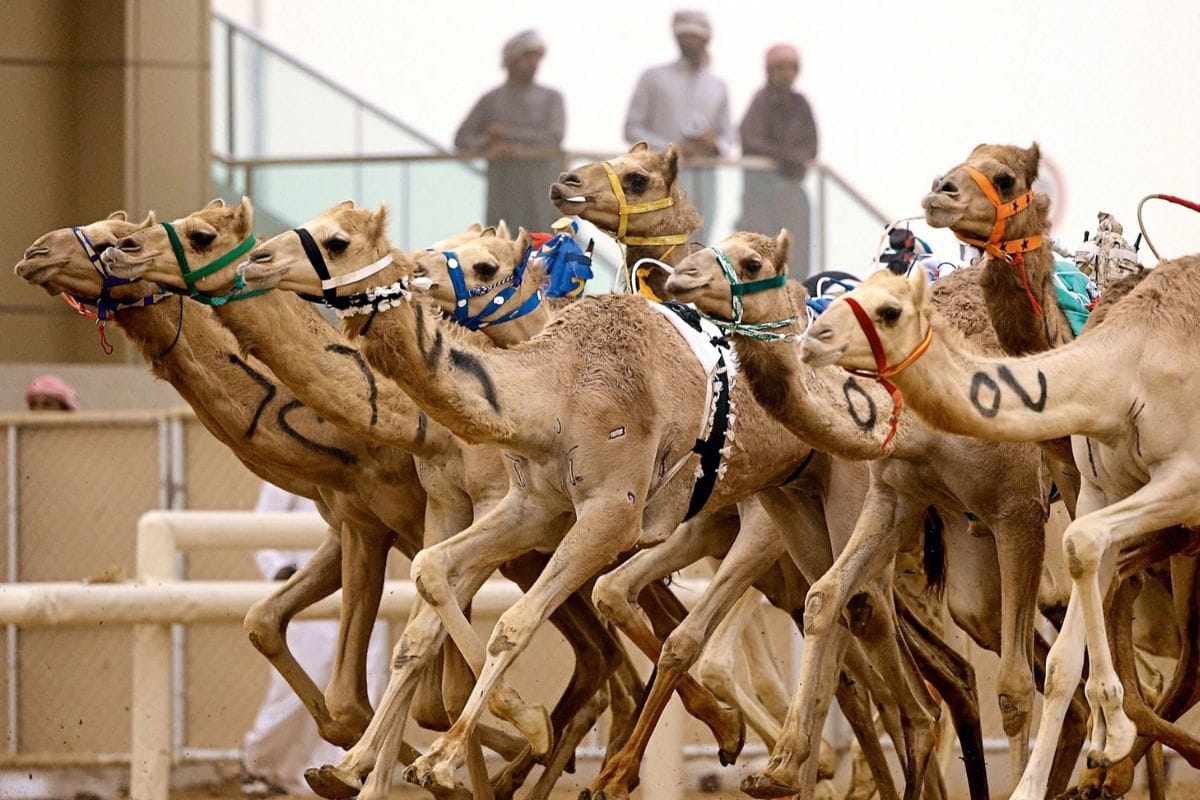
Camel racing is not just a sport but a cultural celebration that connects the Emirati people with their heritage. The sport involves specific camel breeds like Mahaliyat, Omaniyat, and Sudaniyat, known for their racing prowess. These camels are trained on a special diet and undergo rigorous training to build stamina and speed.
Camel racing provides a unique glimpse into Emirati culture. The best months to watch races are between October and April, with famous tracks including Al Marmoum, Nad Al Sheba Racecourse, and Al Wathba in Abu Dhabi. Additionally, camel polo and other camel-related activities offer further engagement with this traditional sport.
Dhow Sailing
In the UAE, dhow sailing is a cherished tradition, rooted in the days when these wooden boats were vital for pearl diving, fishing, and transporting goods. Today, traditional dhow sailing races are held annually during the cooler months, from October to April. These races are divided into three categories based on the length of the dhows: 22ft, 43ft, and 60ft.
All dhows are crafted from wood and designed according to the age-old traditions of dhow-sailing families. Sailors rely on their physical strength and skill to control these boats, passing down techniques from generation to generation, ensuring the art of dhow sailing remains alive. Races typically feature between 60 to 90 dhows, creating a spectacular display of nautical prowess.
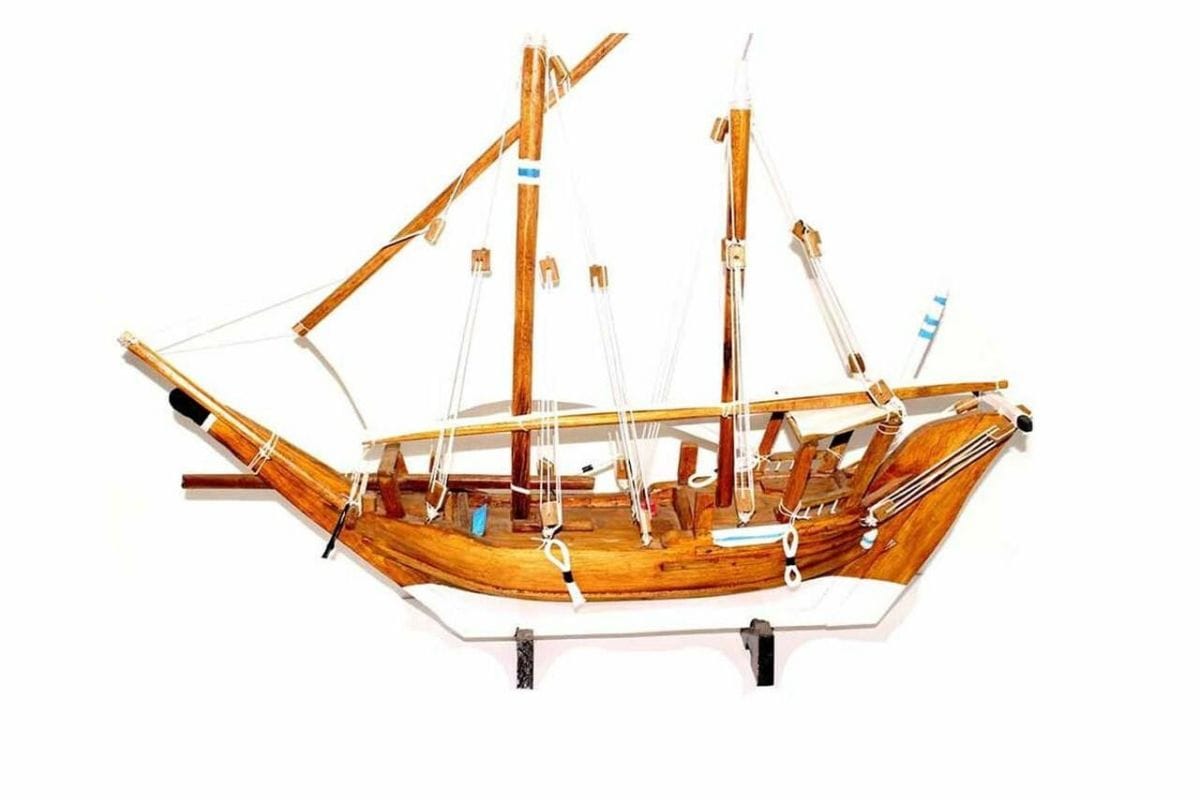
Despite the UAE’s dry climate, watersports have a significant place in Emirati culture. Historically, many of the UAE's now-major cities were once small fishing villages, with economies that depended on the sea. This maritime heritage has fostered a strong tradition of watersports, including dhow sailing.
Dhow sailing races are a highlight of various watersport festivals. Notable events include those held on Mubarraz Island near Abu Dhabi and Sir Bu Nair Island, where competitors race their dhows towards the finish line. These events celebrate the skill and endurance of the sailors, reflecting the UAE’s rich maritime history.
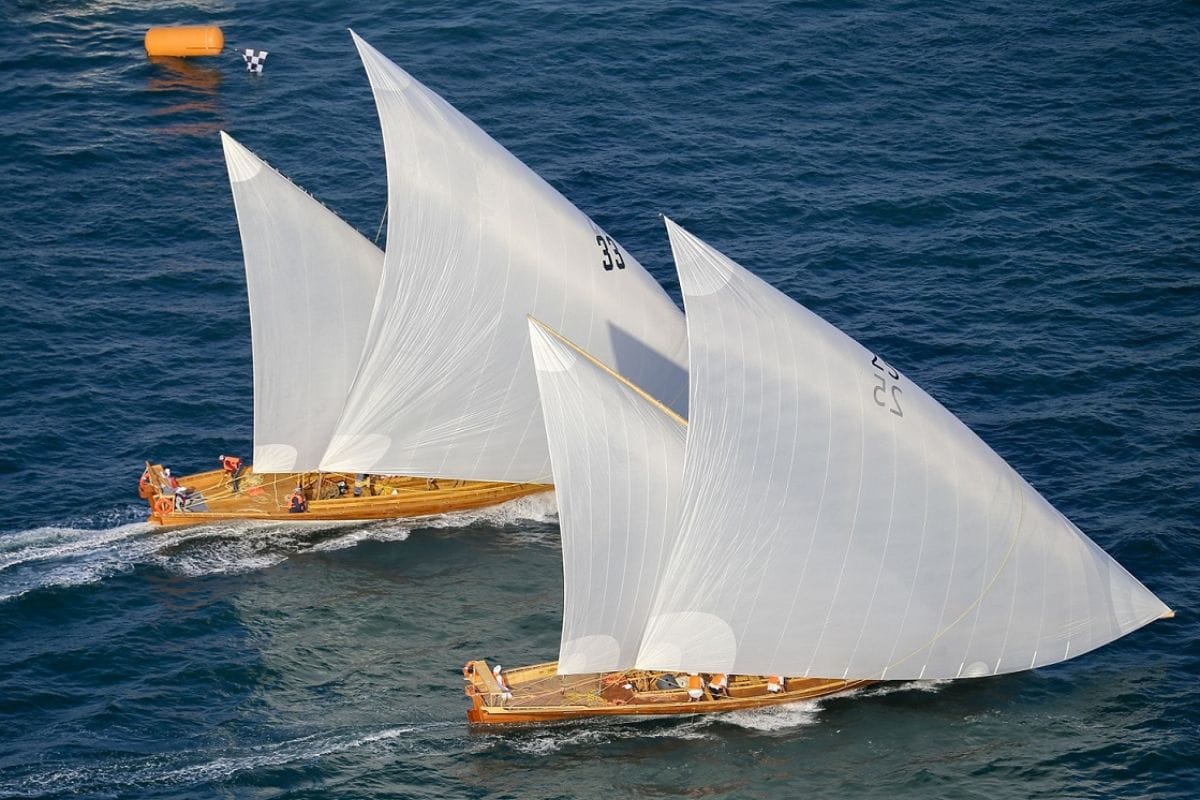
Dhow sailing is a vivid reminder of the UAE’s nautical heritage, showcasing the country's historical reliance on maritime trade for survival and economic growth. The sport not only preserves the traditional skills of sailing but also strengthens the cultural bonds that connect the Emirati people to their seafaring ancestors.
Archery
Archery holds a significant place in the UAE's cultural heritage, deeply rooted in the Bedouin way of life. Traditionally essential for defence and hunting, archery remains a well-loved sport today, celebrated for its skill and historical relevance. To maintain and promote this ancient sport, the UAE hosts numerous tournaments and events focused on accuracy, control, and tradition.
Archery in the Middle East dates back to the Babylonians and Assyrians, with excavations at Ed-Dur uncovering arrowheads from 2,000 years ago. These ancient artefacts can be seen in various museums across the UAE, showcasing the long-standing importance of archery in the region.

Beyond its historical roots, archery holds religious significance for Muslims. The Prophet Muhammad encouraged his followers to practice archery, viewing it as a demonstration of virility and power. This religious endorsement has made archery one of the most popular traditional sports in the UAE.
Traditional Arab archery is akin to Mongol and Turkish archery, utilizing a thumb draw and thumb ring to protect the thumb. This technique reflects the rich tradition and expertise passed down through generations.
The Jebel Ali Shooting Club in Dubai is particularly renowned for its archery facilities, providing an excellent environment for honing one’s skills. Museums like the Al Ain Museum in Abu Dhabi house ancient arrowheads and other archery equipment, offering a glimpse into the sport's storied past.
Archery remains a prestigious and traditional sport in the UAE, blending historical significance with modern-day enthusiasm. The sport continues to draw participants and spectators, preserving the cultural and religious heritage that has defined the UAE for centuries.
Horse Racing
Horse racing is a celebrated sport in the UAE, deeply rooted in the nation's culture and history. Arabian horses, known for their distinct head shapes, strong bones, and exceptional stamina, are one of the most sought-after breeds worldwide, making them ideal for endurance riding and racing.

Historically, Arabian horses were crucial for transportation and combat, playing a significant role in the Bedouin way of life. Today, horse racing continues to be a beloved activity, admired by the general public and the UAE's royal families. Sheikh Mohammed bin Rashid Al Maktoum, the Emir of Dubai, and his son, Sheikh Hamdan, the Crown Prince, are accomplished riders who have won numerous international competitions, highlighting the sport's prestige.

The UAE hosts several prominent horse racing events, most notably the Dubai World Cup, which offers the highest monetary rewards in the sport. The country also hosts the FEI World Endurance Championship, further solidifying its status as a hub for equestrian sports. Every emirate boasts excellent horse racing facilities, reflecting the sport's importance to the Emiratis.
In addition to its sporting significance, horse riding holds cultural and religious importance in the UAE. It is believed to improve physical and mental health, further ingraining it into the Emirati way of life.
In conclusion, traditional sports in the UAE are a testament to the country's rich cultural heritage and enduring connection to its past. They continue to bring communities together, celebrating skills and traditions that have been passed down through generations, ensuring that the spirit of Emirati culture remains vibrant and alive.
Also Read:
